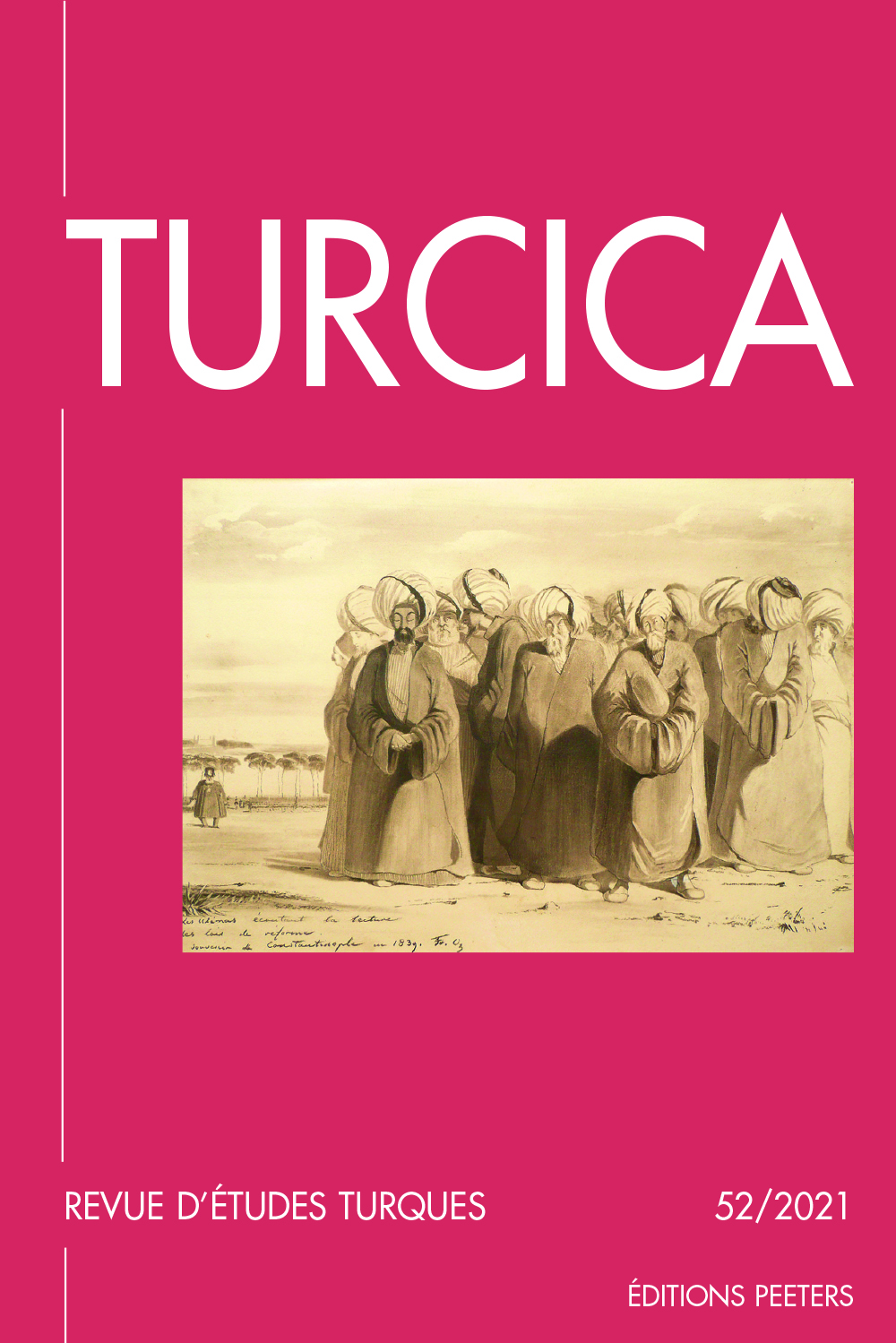 previous article in this issue previous article in this issue | next article in this issue  |

Preview first page |
Document Details : Title: Generi Volluttuari e ragion di stato Subtitle: Politiche repressive del consumo di vino, cafè e tabacco nell'impero ottomano nei secc. XVI e XVII Author(s): SARAÇGİL, Ayşe Journal: Turcica Volume: 28 Date: 1996 Pages: 163-194 DOI: 10.2143/TURC.28.0.2004341 Abstract : Ayşe SARAÇGİL, VoluptuousSubstances and State Grounds: Repressive Policies as regards Wine, Coffee and Tobacco Consumption in the Ottoman Empire in the Sixteenth and Seventeenth Centuries From the second half of the reign of Suleyman the Magnificent onwards, consumption of wine, tobacco and coffee in the Ottoman Empire became the object of intense discussion, prohibition and repression. Government policy was not unilinear, but the forces in favour of prohibiting the use of these substances reached the peak of their influence during the brief and ferocious reign of Murad IV (1629-1640). The article argues that wine, tobacco and coffee must be treated as separate topics, each provoking specific debates concerning the ethics of their consumption (whether private or public), each being dealt with in diverse ways by successive sultans and religious authorities. However, as a whole, the history of these substances widely reflects the changing social, political and religious climate of the Ottoman Empire in those decades. The repression under Murad IV emerges as a rearguard action against a new conception of public space, of which coffee-houses were the clearest example. Ayşe SARAÇGİL, Substances euphorisantes et raison d’État: les politiques répressives de la consommation du vin, du café et du tabac dans l’Empire ottoman aux XVIe et XVIIe siècles À partir de la seconde moitié du règne de Soliman le Magnifique, la consommation du vin, du tabac et du café deviennent objets de discussions intenses, d’interdits et de répression. La politique du gouvernement n’est pas constante, mais les forces en faveur de la répression atteignent le sommet de leur influence sous le règne bref mais féroce de Murad IV (1629-1640). L’optique adoptée ici est que vin, café et tabac doivent être considérés séparément, chaque substance suscitant des débats spécifiques et étant traitée différemment par les sultans successifs et les autorités religieuses. Néanmoins, l’histoire de ces substances, prises ensemble, est un révélateur important des changements du climat social, politique et religieux de l’Empire ottoman dans ces décennies. La répression sous Murad IV apparaît comme une réaction d’arrière-garde contre une nouvelle conception de l’espace public dont les cafés offraient l’illustration la plus évidente. |
 |


